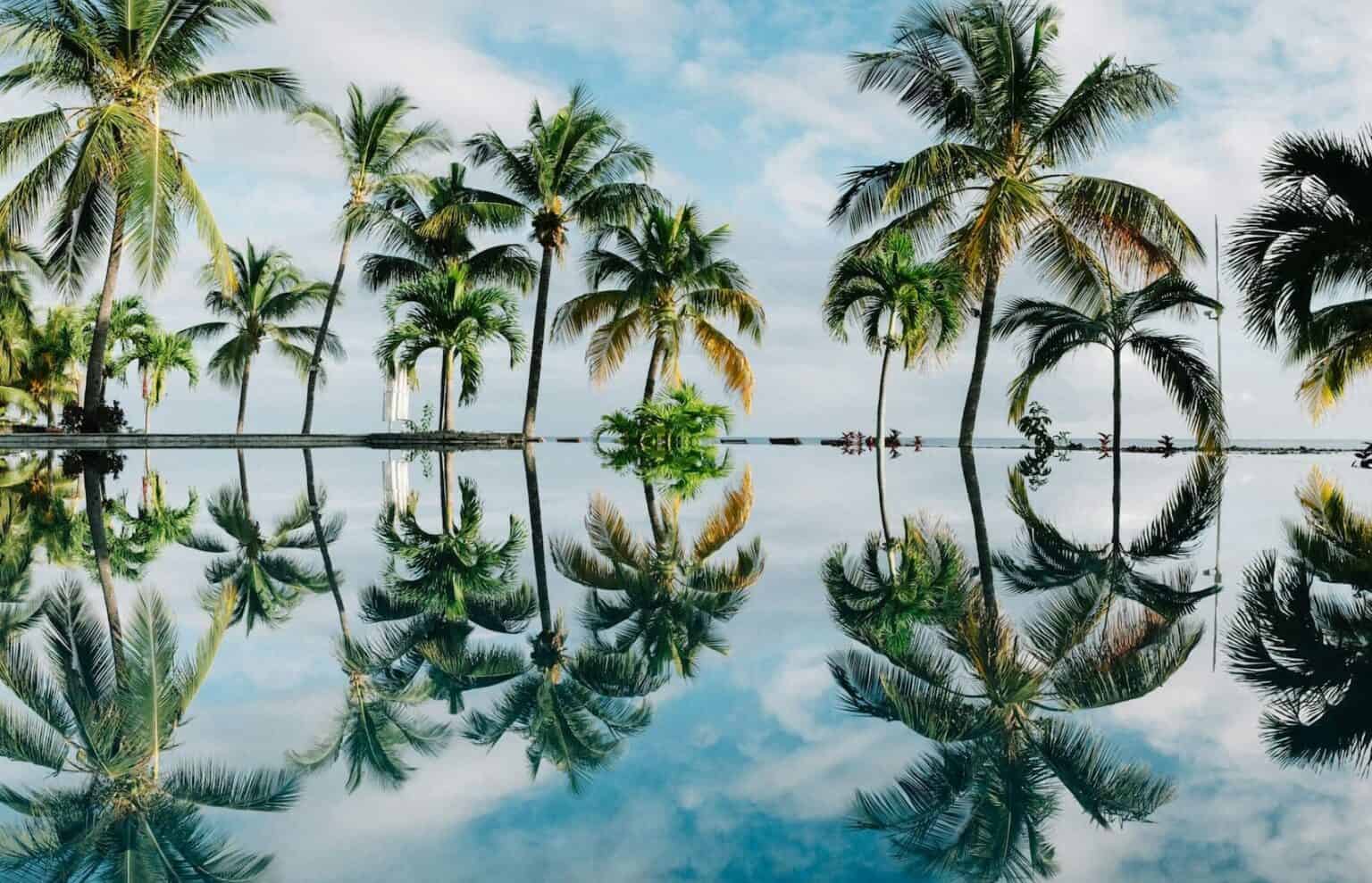Mauritius? Allons-y!
Escape the crowds for a hint of paradise
I remember telling a friend, “You have to honeymoon in Mauritius. You’ll both love it.” I nagged them until they finally booked the trip. Then a wave of panic hit me. Did I just ruin their first week of marriage with my suggestion? But no worries – they came back ecstatic. They totally got it: “Ahh, l’île Maurice, toujours spéciale.”
My history with the island and the reactions of everyone who goes reinforces my affection for Mauritius. Go. It’s good. Really good. Like, life-altering good.
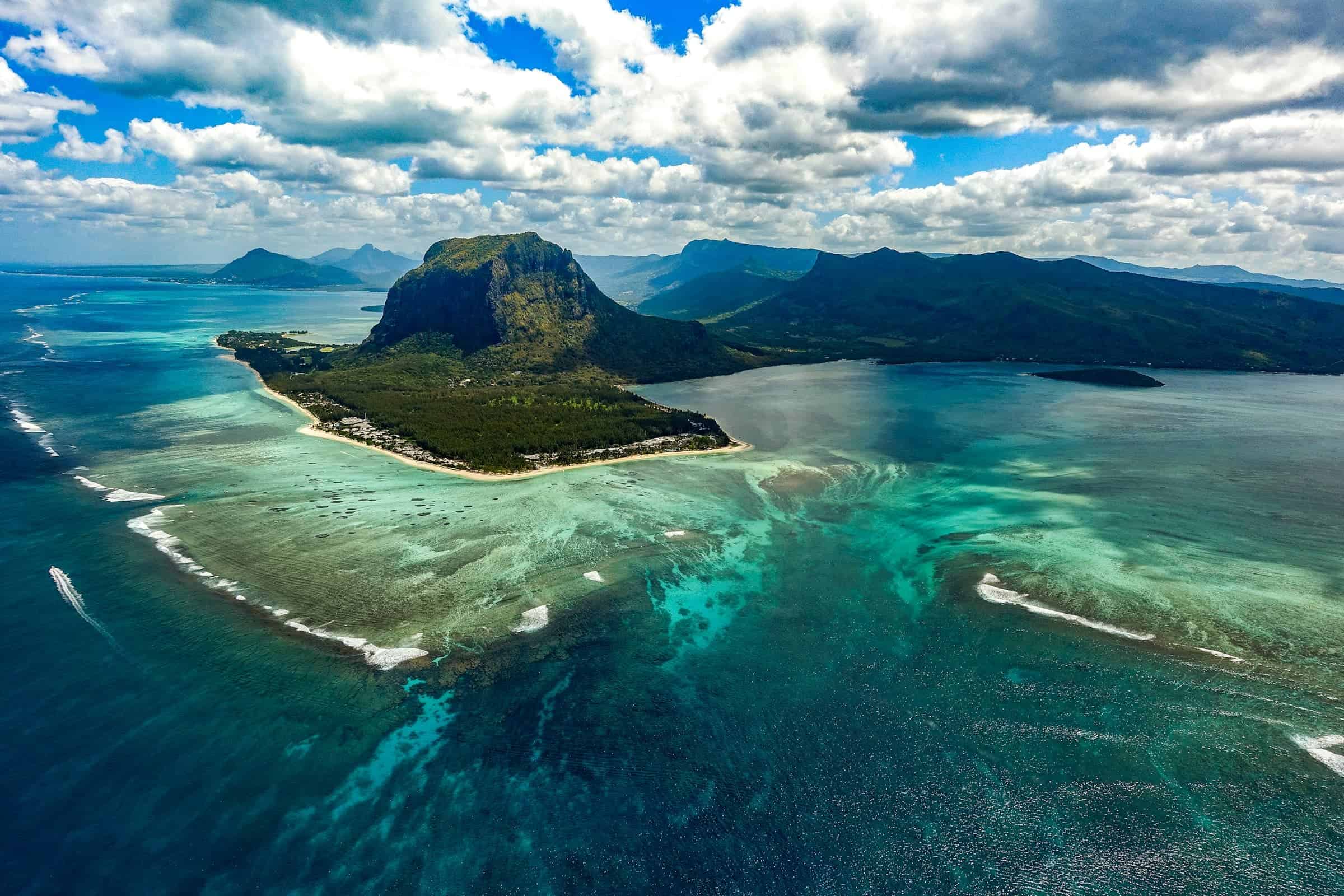
12-hours from London and Paris. Worth It.
Is the cost of flying to a distant island like Mauritius a deal-breaker for most British or European travellers? While the flight might be pricey, the overall expenses – flights, transfers, hotels, food, drinks, entertainment, and some spontaneous shopping – can be comparable to a summer trip within the EU. Consider this: can you really put a price on your mental health? Imagine avoiding the towel wars and crowded beaches of the Côte d’Azur, and relax on the near-empty, pristine stretches of Mauritian sands. Ker-ching…you’ve saved some money and swapped pandemonium for paradise. Une situation gagnant-gagnant!
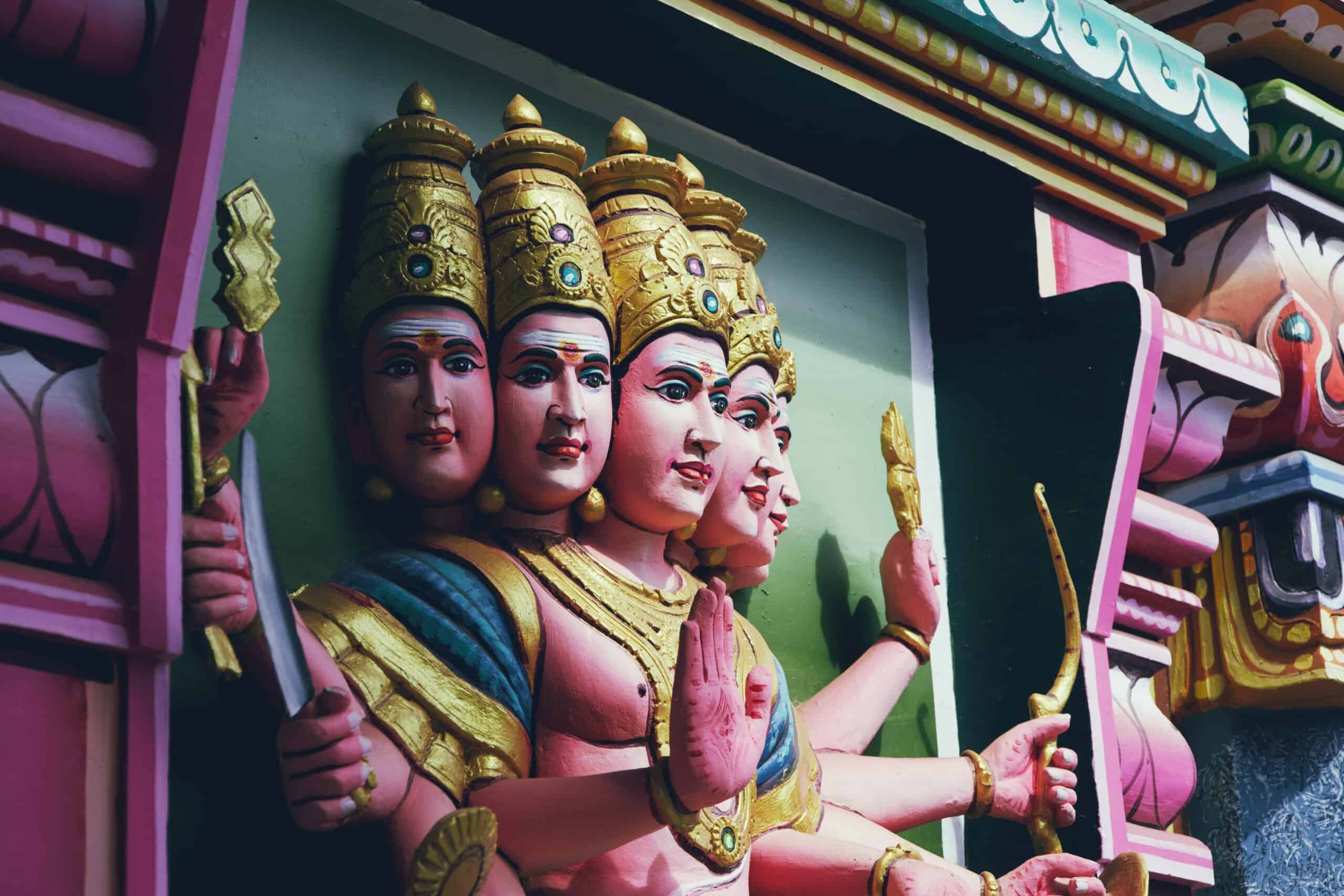
Special island, special people
What sets this island apart from other Indian Ocean nations is its rich cultural diversity. After a turbulent history under Dutch, French, and British colonial rule, Mauritius declared independence in 1968, became a Republic in 1992 and has been a model of stability and economic success in the region.
Unlike places where cultures clash, the ethnic and religious differences on this laid-back island are not barriers to social cohesion. The clearest example is its calendar of national holidays which celebrate Hindu, Muslim, Buddhist, and Christian traditions. From Chinese New Year and Diwali to Easter, Christmas, and Eid al-Fitr, the widespread acceptance of diversity in the Mauritian community embodies a spirit of fraternity that defines the nation.
Even language here is a special mix. English rules in parliament and the courts, French dominates for business interactions, and for daily connections it’s all about Mauritian Creole – a blend of French, English, African, and Malagasy influences that tells the island’s story of integration and its identity as an independent nation.
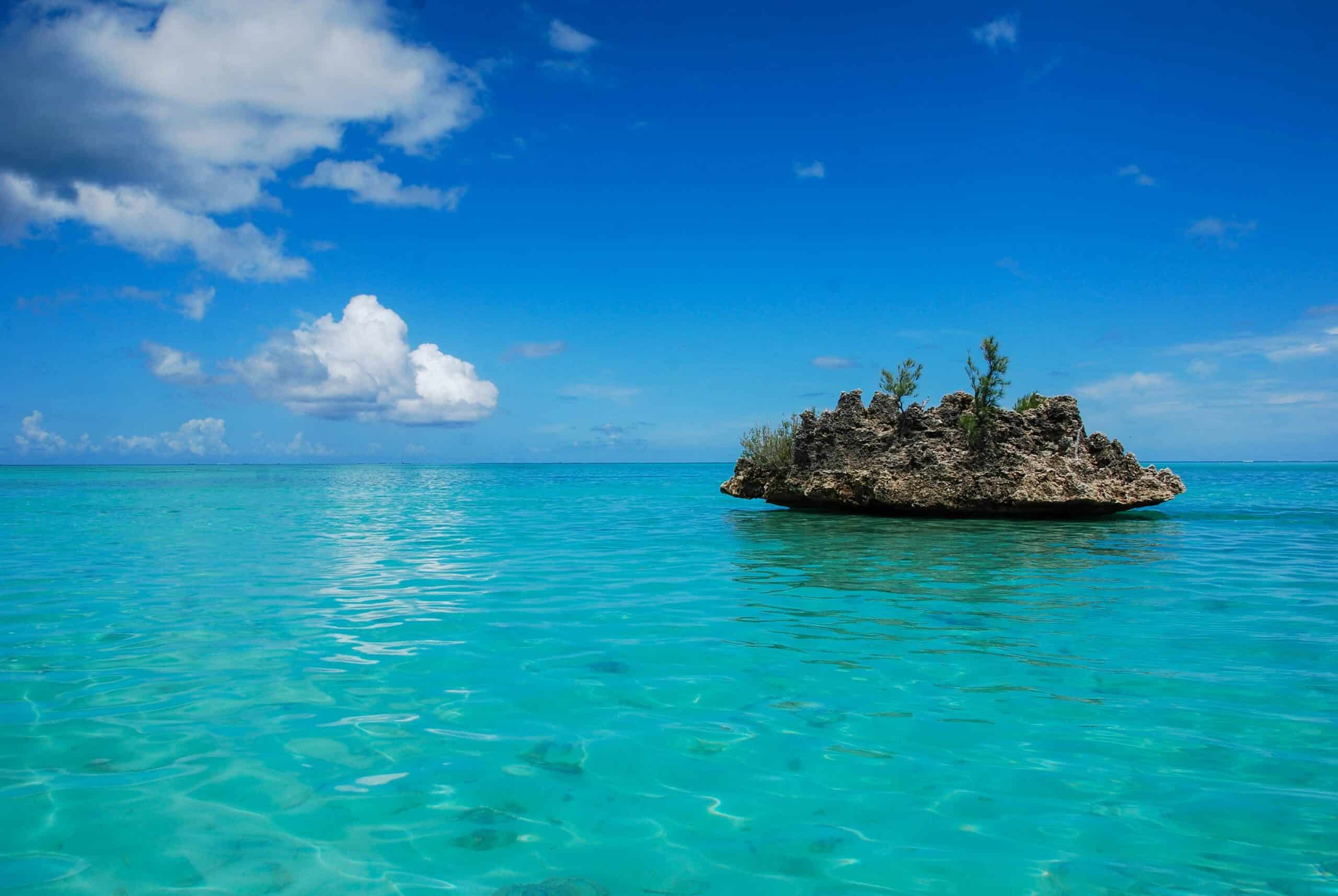
Mauritius and the sea
It’s like looking at a cartoon. Your mind says it isn’t real as its too perfect, too clear, too turquoise, too unspoilt. But it is real. Mauritius will amaze you with its waters, vibrant coral reefs, and diverse marine life. Whether you’re paddling shoreside in a lagoon or braving the open sea, every swim here can be memorable.
Shielded by coral reefs that encircle most of the island, most beaches have sheltered water perfect for swimming, snorkelling, and a range of water sports. Even better is the sea temperature, which is consistently warm to mild year-round, so there’s never that delay of will-I/won’t-I-get-in.
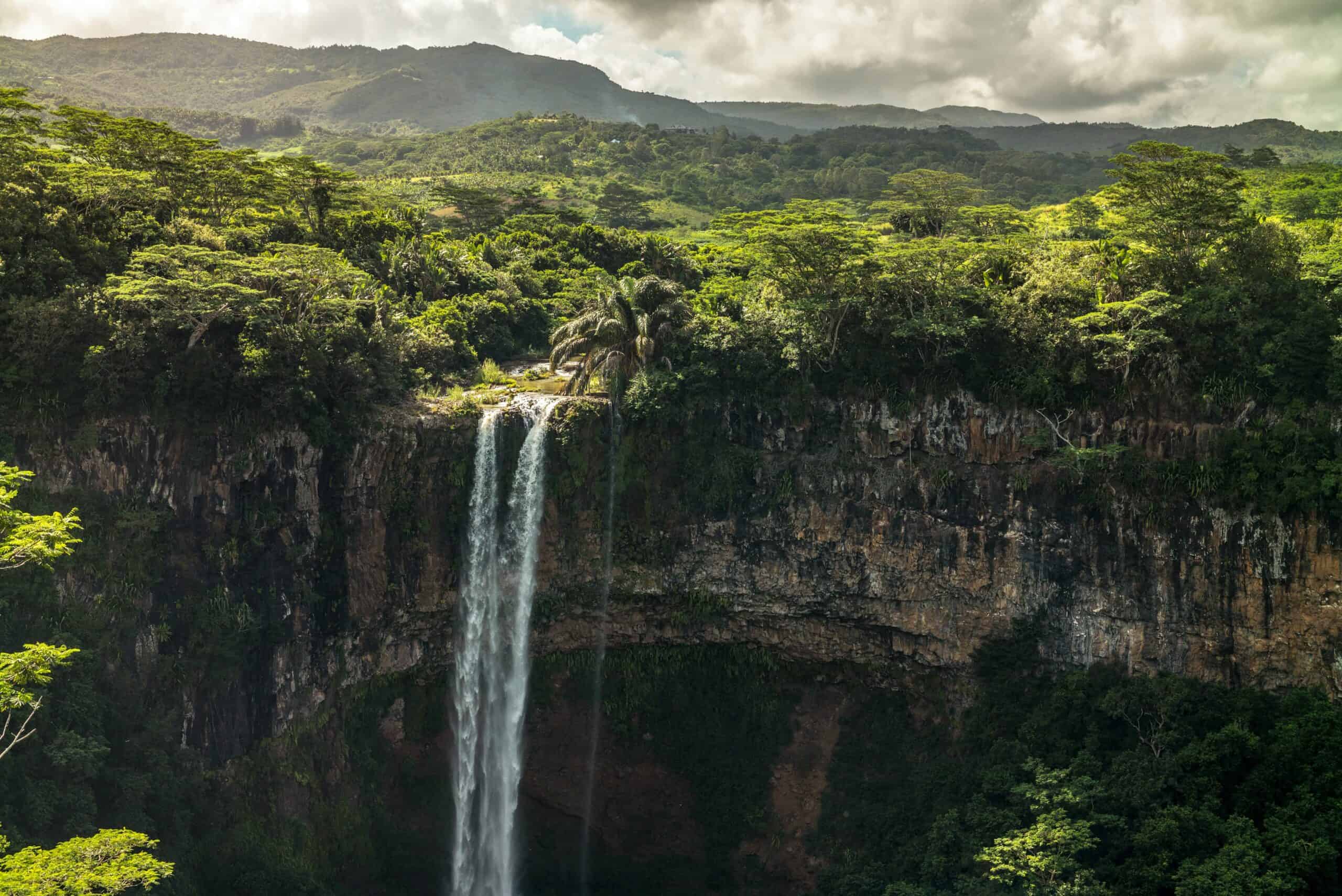
Beyond beaches
The American author Mark Twain famously quipped that Mauritius came ahead of heaven, so it was imitated – spoiler alert, massive if true – which might position this island somewhere in your imagination as beautiful, lush and almost perfect… and some of it might just be that.
Beyond its stunning beaches, the island offers lush forests and breathtaking mountains with Black River Gorges National Park in the west a favourite for hikes and recreation. Other protected areas like Bras d’Eau, Plaine Sophie, and the Ebony Forest in Chamarel, also home to the Seven Coloured Earth and a majestic waterfall, offer a geological experience unique to Mauritius.
For inland adventure seekers, Mauritius’ volcanic peaks await. Most famously, the day-challenge of Le Morne delivers spectacular ocean views, while tackling Le Pouce and Pieter-Both in the centre of the island are a little trickier and require a guide.
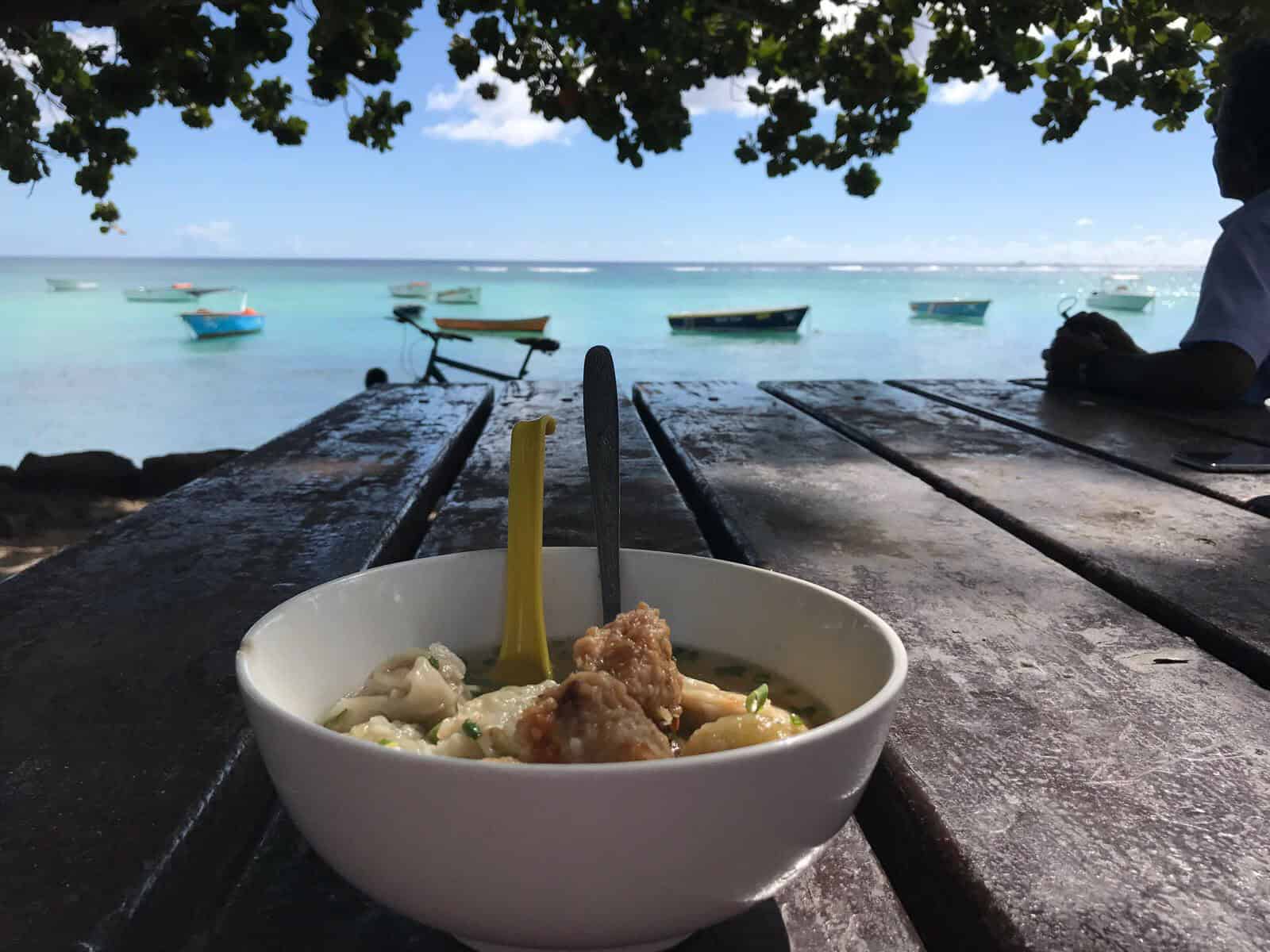
Kwizin Morisien – Mauritian cuisine
The diversity in Mauritian ethnicities makes the island’s cuisine the melange you might imagine. An amazing seafood larder, married with Indian, African, Chinese and French influences to deliver a special experience – and when a snack is less than what you’d pay for your favourite coffee back home, you know you’re a winner for coming.
Yes, you can spend a fortune on food at the best resorts – I’ve been fortunate to have been to many – but there is much savour and enjoy from a dholl puri (a lentil pancake with vegetable curry) and gateau piment (chili cake) cooked and served streetside, or a bowl of Mauritian-style dumplings and soup, best enjoyed beachside.
Then there is the joy of discovering what no other tourist on the flight to Mauritius will see – take a chance and walk into any family-run, independent restaurant that offer incredible quality and value. If locals are dining there, then you should be too. Mauritians are savvy on taste and quality.
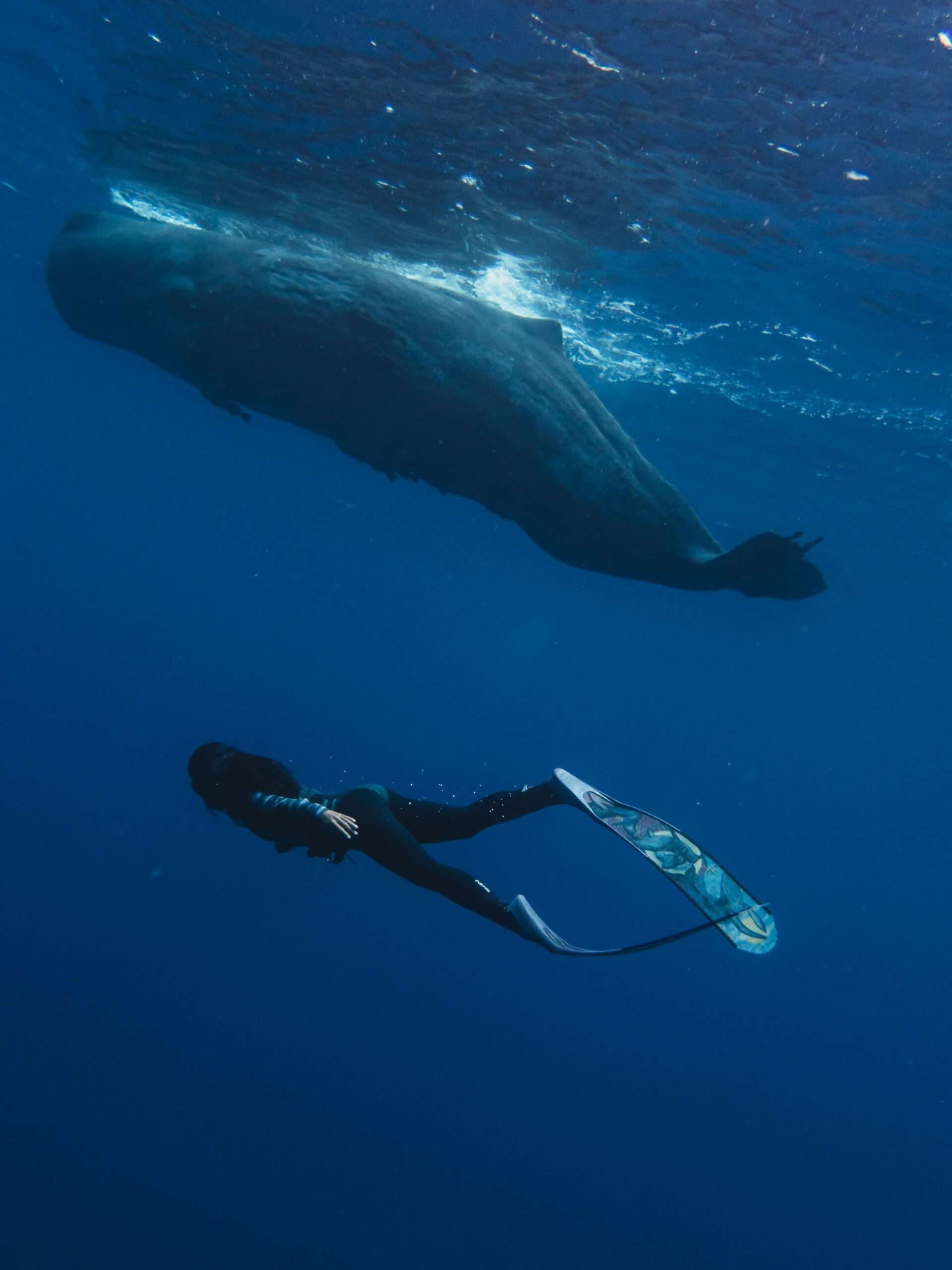
A real alternative to a European summer vacation?
YES, Europe has its cultural giants, incredible sights, grand museums, cuisine and amazing vistas, but in my view, Mauritius offers a far more precious commodity than all these combinations – authenticity. Life here is slow, the locals are incredibly friendly, and the island remains unspoilt and still waiting to be appreciated.
On arrival you might just want to do nothing more than lay on a lounger and drink the local rum (it’s amazing!) and the Mauritius you experience will deliver the tonic your life needs from vacation time. Alternatively, you can dive, surf, kite, hike, climb or mountain bike until your lungs cry for a break – and then later the same evening find that you didn’t know how infectious and cool the local Sega music scene is.
Lapè, lamour ek soley – peace, love and sunshine
So, for EU and UK citizens sick of packed beaches and excessive costs, I say: Mauritius awaits. Visit for the beaches, fall in love with its people, culture, nature and food and then carry your own story of this paradise back home to share.
Exploring the road less travelled: Southeast Asia’s uncharted wonders
